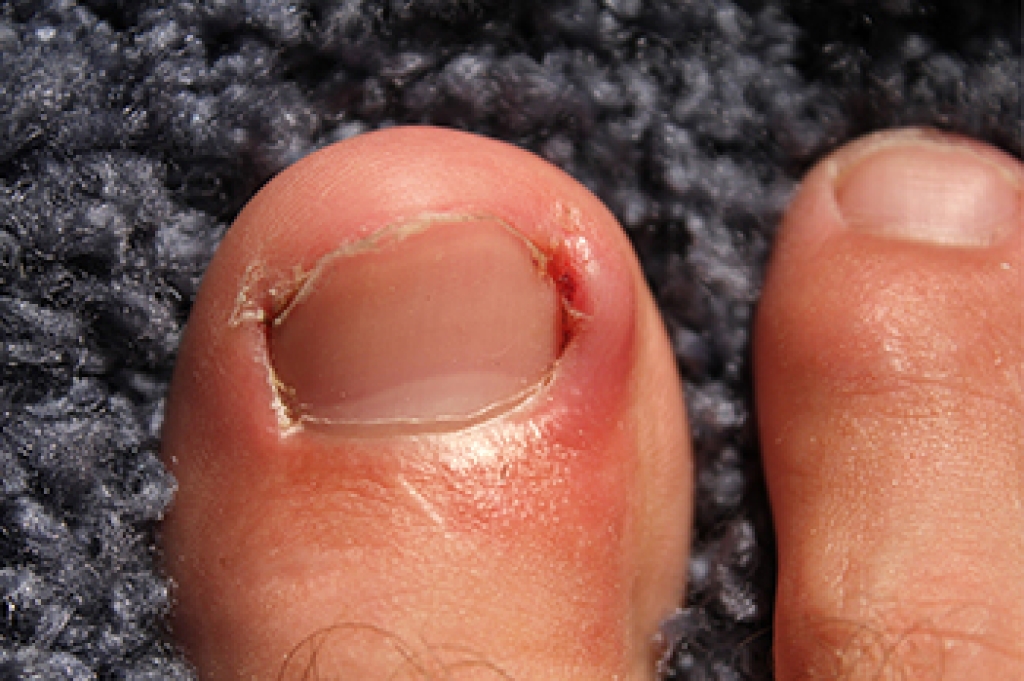
An ingrown toenail is a condition where the edge of a toenail grows into the surrounding skin, causing irritation and pain. While mild cases may seem to improve temporarily, ingrown toenails rarely heal on their own and often worsen without proper care. Common causes include improper nail trimming, tight footwear, toe injuries, and inherited nail shape. Symptoms may include redness, swelling, tenderness, drainage, and signs of infection around the nail border. Walking or wearing shoes can become uncomfortable as the condition progresses. A podiatrist can help by safely removing the ingrown portion of the nail, treating infection, and preventing recurrence through corrective procedures and education. If you have ongoing toe pain, swelling, or signs of infection, it is strongly suggested that you promptly consult a podiatrist who can offer effective treatment solutions, which may include minor surgery for nail removal.
Ingrown toenails can become painful if they are not treated properly. For more information about ingrown toenails, contact one of our podiatrists of Prince William Foot & Ankle Center, PC. Our practitioners can provide the care you need to keep you pain-free and on your feet.
Ingrown Toenails
Ingrown toenails occur when a toenail grows sideways into the bed of the nail, causing pain, swelling, and possibly infection.
Causes
- Bacterial infections
- Improper nail cutting such as cutting it too short or not straight across
- Trauma to the toe, such as stubbing, which causes the nail to grow back irregularly
- Ill-fitting shoes that bunch the toes too close together
- Genetic predisposition
Prevention
Wearing proper fitting shoes and using proper cutting techniques will also help decrease your risk of developing ingrown toenails.
Treatment
Ingrown toenails are a very treatable foot condition. In minor cases, soaking the affected area in salt or antibacterial soaps will not only help with the ingrown nail itself, but also help prevent any infections from occurring. In more severe cases, surgery is an option. In either case, speaking to your podiatrist about this condition will help you get a better understanding of specific treatment options that are right for you.
If you have any questions, please feel free to contact our offices located in Gainesville and Dulles, VA . We offer the newest diagnostic and treatment technologies for all your foot care needs.




